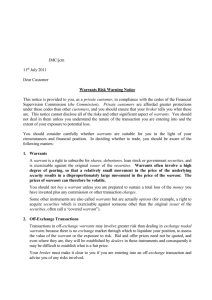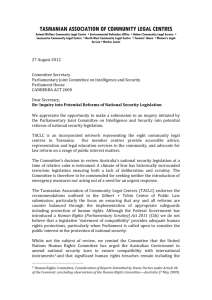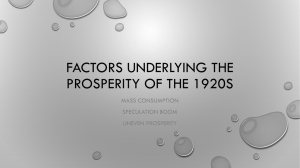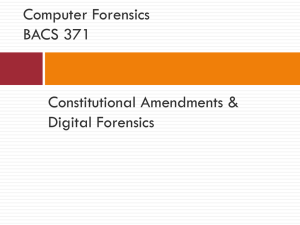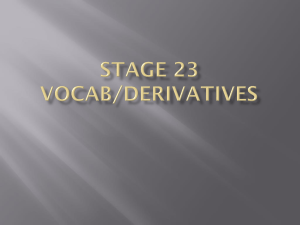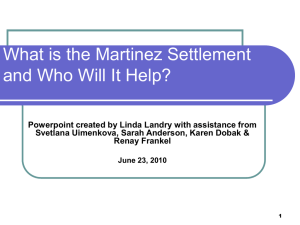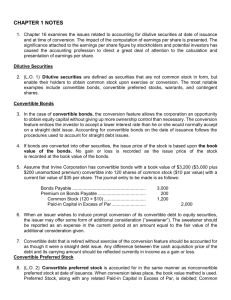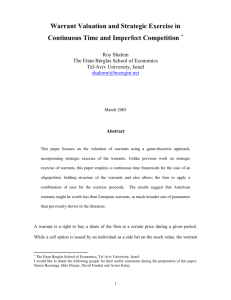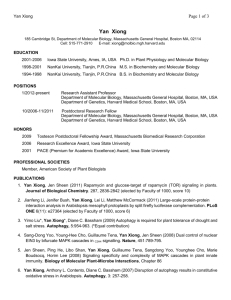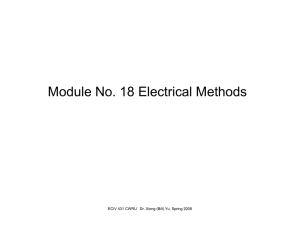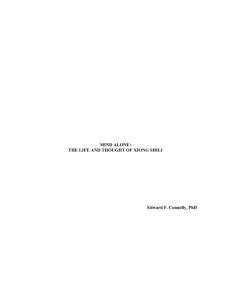该领域主要研究问题
advertisement
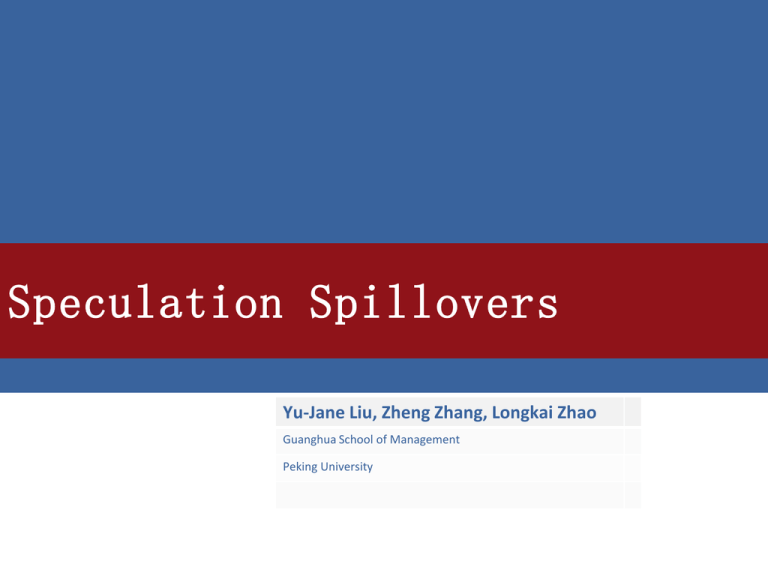
Speculation Spillovers Yu-Jane Liu, Zheng Zhang, Longkai Zhao Guanghua School of Management Peking University 1 Outline 1. Motivation 2. Results 3. Empirical Investigation 4. Conclusion 2 Motivation 3 The impact of derivatives 单击此处编辑母版标题样式 Stabilization Derivatives Destabilization • Low cost • Danthine (1978) • Stein (1987) • High margin • Turnovsky (1983) • Kraus and Smith (1996) • High liquidity • Etc… • Etc… Derivatives traders are rational and sophisticated 4 WuLiang Put warrant Source: Xiong and Yu (2010) 5 WuLiang Put warrant Source: Xiong and Yu (2010) 6 Behavioral bias exits in derivatives markets Xiong and Yu (2010) • 16 deep-out-of-the-money put warrants • The frenzied trading and spectacular bubble in the Chinese warrants market • Greater fool theory (resale option theory) Other studies Heath et al. (1999), Poteshman (2001), Horst and Veld (2008), Haigh and List (2005), Liu, Wang, and Zhao (2010) 7 Results 8 单击此处编辑母版标题样式 Speculation spillovers Research question What are the impacts of behavioral biases in derivatives trading on the underlying asset? Main findings The underlying stocks are traded significantly more after the introduction of warrants, and the stocks are traded more extensively when the warrant speculation is more severe. The increased stock trading cannot be fully explained by reasons such as information and hedging. The spillover effect is intensified when the divergence of investors’ beliefs is more pronounced. 9 Our explanation 单击此处编辑母版标题样式 Resale option theory • Our results suggest that the resale option value of stocks increases with warrant bubbles •Resale option theory • Miller (1977), Harrison and Kreps (1978), and Scheinkman and Xiong (2003) • Two conditions: Heterogeneous beliefs and short-sale constraint • Overvaluation The links Heterogeneous beliefs A lack of knowledge about warrants contributes to the dispersion of beliefs among stock investors. (Harris and Raviv (1993) and Kandel and Pearson (1995)) Limited attention caused by warrants introduction. (Sims (2003), Hirshleifer and Teoh (2003), Peng and Xiong (2006), Barber and Odean (2008), Hou, Peng, and Xiong (2009), Yuan (2008)) Short-sale constraint 10 Empirical investigation 11 Data I 单击此处编辑母版标题样式 Source • WIND • We collect the complete observations of 50 warrants that are listed in Shanghai Stock Exchange and Shenzhen Stock Exchange between August 2005 and June 2008 Variables • Warrant: warrants turnover, IPD, duration, covered or not, put dummy, etc… • Stock: stock turnover, liquidity, size, etc… • Market turnover, industry • Turnover and IPD are de-trended 12 单击此处编辑母版标题样式 Data II Mainland vs. Hong Kong 13 单击此处编辑母版标题样式 Data III 14 单击此处编辑母版标题样式 The Introduction of warrants I Methodology • Event study • We formulate three pre-event periods, i.e., (-45, -15), (-90, -30), and (-180, -30), and •three symmetric post-event periods around event day 0. Result I 15 单击此处编辑母版标题样式 The Introduction of warrants II Result II 16 单击此处编辑母版标题样式 Speculation spillover Methodology • A pooling regression • Result 17 单击此处编辑母版标题样式 Information and hedging Concerns • Information: put warrants might convey negative information • Hedging purpose: hedge ratio Result • Coefficients before put dummy are significantly negative • Hedge ratio has positive sign • Still, IPD and warrants turnover are significantly positive • Why not a sample with no concern of information and hedging? 18 单击此处编辑母版标题样式 Deep-out-of-the-money put warrants Advantage • Warrants prices contain no information at all. • The change of hedge ratio is always zero. Result 19 单击此处编辑母版标题样式 Behavioral explanation Test of the resale option story • If the story of the resale option holds, where should we see stronger speculation spillover effect? • Smaller asset float: Hong, Scheinkman and Xiong (2006) develop a model to show that asset float (the number of tradable shares) has a large effect on the size of bubble. The implication is that there exists a negative relationship between resale option value and asset float. • Bull/Bear market: When the market is dominated by optimistic investors, it is easier to drive out pessimists. The resale option value is higher (Harrison and Kreps (1978), Morris (1996), Scheinkman and Xiong (2003), and Hong, Scheinkman and Xiong (2006)). 20 单击此处编辑母版标题样式 Behavioral explanation: asset float Result 21 单击此处编辑母版标题样式 Behavioral explanation: market sentiment Result 22 Conclusion 23 Conclusion 单击此处编辑母版标题样式 Main Findings • We find a speculation spillover effect between warrants market and stock market • We argue that the speculation spillover may be the result of increased behavioral biases in stock trading introduced by the warrant bubble. • Our study provides a test of the resale option theory by examining the exogenous influence of warrant speculations on stock trading. • Our findings encourage more discussion on the design of financial derivatives in the financial market. 24 Thank you 25
